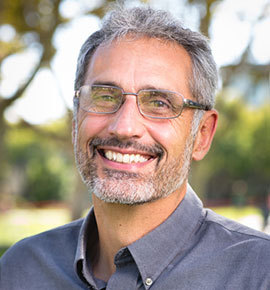D.Min. Track: Engaging Mind and Culture
Overview
Cultures are formative. They always shape us toward visions of the good, but those visions are not always sound. The human cultures we live in are a swirling mixture of wisdom and foolishness, truth and lies, good and evil. Our culture simultaneously makes God shine forth and also blinds us to his very existence; our culture can awaken longings that lead us to the feet of Jesus but it can also be a means to avoid, ignore or displace God. It is often said of families that we can’t live with, and we can’t live without them. The same can be said for cultures.
Therefore, the Christian mind concerning human culture should not merely be critical. It should be discerning–able to sort out the good, the bad, and the ugly–refining and enhancing what is good, redeeming or restructuring the bad, and rejecting and shunning the evil.
Next Available Track: Spring 2027
Application Deadline
November 1, 2026
Residency Dates
- May 17–28, 2027 (new cohort)
- May 15–26, 2028
The Strategy
Year One: Human Culture, Christian Discipleship and the Lordship of Christ
Our first year together we will learn critical skills for identifying the theological and philosophical assumptions that energize and direct our society. We will develop a strategy for engaging culture which is academically rigorous, but which expresses a genuinely Christian theological vision for all that God had made. This vision will seek to be biblically sound, but also practical enough to be implemented in local church and para-church ministries (not just academic university settings).
In the first week, students will be introduced to a practical framework for addressing cultural issues that begins with philosophical and theological foundations and ends with Christian convictions that can guide practical action in our cultural contexts. Our goal will be shaping a well-formed Christian mind, character and will. In the second week, we will engage a cluster of important cultural issues related to human sexuality, critical race theory, and the political order. These examples will serve not only to deepen our understanding of these particular cultural issues, but also help us learn patterns of thinking that will be employed and refined through the rest of our time together.
Year Two: Theological Engagement of Contemporary Culture
Our second-year cohort experience will help students to deepen the application of the tools of cultural engagement developed in our first year. We will use a similar format for our readings and residency, but address issues identified as being of particular interest to the students in our cohort. Previous cohorts have discussed issues including: “deconstructing” faith, technology and artificial intelligence, applied social ethics, and creation care and the environment.
he second year will continue to deepen our theology and develop analytical skills fitted to the challenges of our cultural moment, but it will be especially focused on developing a positive theological imagination for the facets of creation and culture that we address. We will also emphasize engaging issues at a local level by doing things that are practical and can be implemented in local communities and congregations.
Year Three: The Christian Vocation in Contemporary Culture
Our third-year cohort experience will follow a similar format of readings and discussion from our previous years of residency. Our main focus will be on how aesthetics, ethics and epistemology, and how these connect with the compelling proclamation of the Christian gospel. We will discuss not only the importance of our personal faith but also draw on historical examples of the church’s witness as a living community. The second week of residency will be structured around student presentations on a topic closely related to their doctoral project. This will help students refine their skills, model what we have learned, and finally translate this knowledge into a specific project that aims to influence and revitalize the witness of the Church in some aspect of contemporary culture.
The Faculty Mentor

Rick Langer is a Professor of Biblical Studies and Theology and the Director of the Office of Faith and Learning at Biola University. He specializes in the integration of faith and learning, and has also published in the areas of bioethics, theology and philosophy. He has a passion for helping Christians of all ages understand the connection between the Gospel and all the diverse facets of the created order in which we live. Prior to coming to Biola, he served for over twenty years as a pastor at Trinity Evangelical Free Church in Redlands, California. Dr. Langer hosts the Winsome Conviction podcast, named after his recent books Winsome Conviction: Disagreeing Without Dividing the Church, with Tim Muehlhoff, IVP Academic and Winsome Persuasion: Christian Influence in a Post-Christian World, with Tim Muehlhoff, IVP Academic.